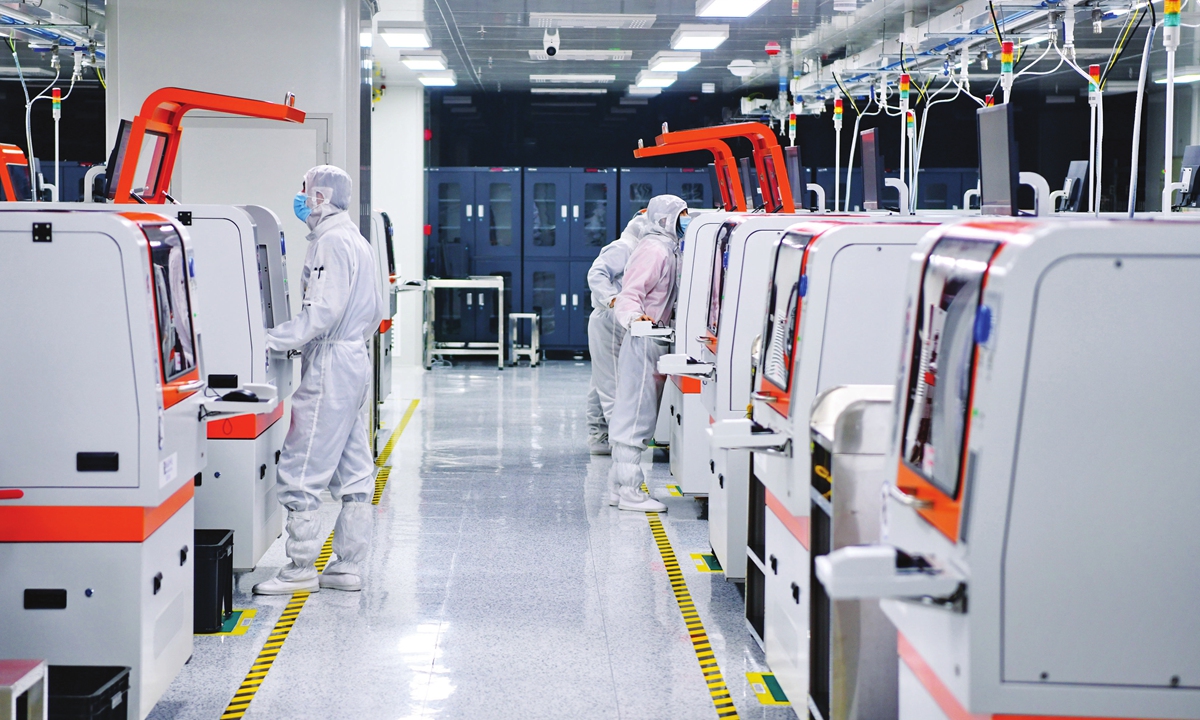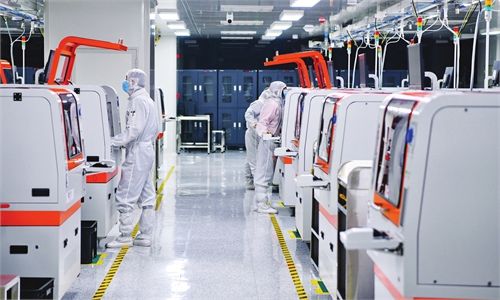
Workers process and produce chips for foreign trade export in a technology company in Ganzhou, East China’s Jiangxi Province on March 28, 2022. Photo: VCG
Taiwan Semiconductor Manufacturing Company (TSMC) announced on Thursday that the company is expanding the capacity for 28nm process chips in its plant in Nanjing, East China’s Jiangsu Province as planned.
TSMC Chairman Liu Deyin revealed the news at the firm’s second quarter earnings conference call on Thursday, saying that the expansion is aimed at supporting customers in the Chinese mainland.
The remarks showed that TSMC aims to stay competitive in the mainland market despite facing pressure from the US, experts said.
The 28nm process chips have a wide range of applications and are used in electronic devices including smartphones, tablets and computers.
TSMC's increased investment in its factory in Nanjing will help it to increase its presence in the Chinese market, experts said, highlighting the fact that China is one of the largest electronic equipment markets in the world.
It also shows TSMC has no plans to withdraw from the Chinese mainland market and is determined to continue manufacturing and selling in the mainland despite pressure from the US, Ma Jihua, a veteran telecom industry observer, told the Global Times on Thursday.
The US has tried to pressure the world’s top chipmakers to cut out the Chinese mainland’s chip industry chain and transfer production capacity to the US. It has been pushing chip companies including TSMC to manufacture and set up plants in the US.
TSMC is expanding its US investment amid the political pressure, but faces obstacles. Liu said in the conference call that TSMC's US factory is facing difficulties, and mass production of the 4nm process has been delayed to 2025. It was originally planned for 2024.
Setting up factories in the US is challenging due to difficulties in hiring local workers and high operating costs, which result in increased product costs, Ma said, noting that it is not economically viable for the chip company to produce goods in the US.
The global semiconductor downturn is continuing to impact the performance of TSMC.
According to its financial results, TSMC’s second quarter revenue decreased 10.0 percent year-on-year. Compared to the first quarter of 2023, the second quarter saw a 5.5 percent decrease in revenue and a 12.2 percent decrease in net income.
TSMC's factory in the US has sparked concerns about a talent outflow and a hollowing-out of the local chip industry in the island of Taiwan, where chip manufacturing is the backbone of the regional economy.
From TSMC's perspective, it is unlikely that it will be particularly proactive in establishing factories in the US, according to Ma.
“TSMC will lose its competitiveness if its advanced manufacturing processes and skilled engineers are relocated to the US,” Ma added.

